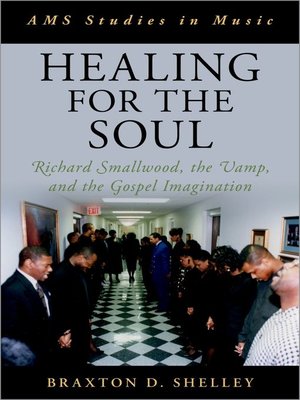Healing for the Soul
ebook ∣ Richard Smallwood, the Vamp, and the Gospel Imagination · AMS Studies in Music
By Braxton D. Shelley

Sign up to save your library
With an OverDrive account, you can save your favorite libraries for at-a-glance information about availability. Find out more about OverDrive accounts.
Find this title in Libby, the library reading app by OverDrive.



Search for a digital library with this title
Title found at these libraries:
| Library Name | Distance |
|---|---|
| Loading... |







